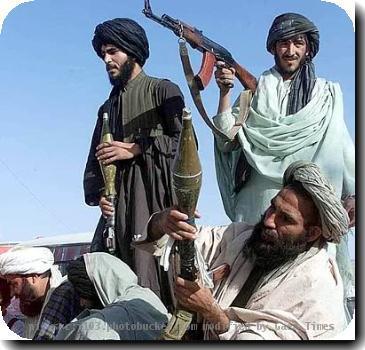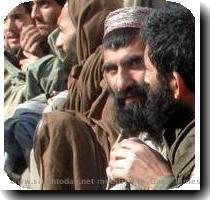Pakistan court stops deportation of top Taliban leader
By DPA, IANSFriday, February 26, 2010
ISLAMABAD - A Pakistani court Friday blocked the possible deportation of a top Afghan Taliban leader recently detained in the country, a lawyer said.
Mullah Abdul Ghani Baradar, second only to the Taliban supreme chief Mullah Omar, was seized by Pakistani and American intelligence agents in Pakistan’s southern city of Karachi earlier this month.
Islamabad confirmed the capture of Baradar, which was followed by reports about the arrest of more Taliban figures, including two “shadow governors” for the Afghan provinces of Kunduz and Baghlan.
“The Lahore High Court decreed on Friday that none of the detainees should be handed over to any foreign country,” said Tariq Asad, a lawyer for civil rights activist Khalid Khwaja who petitioned the court to stop the deportation.
The order came a day after the Afghan presidential palace said in a statement that the Pakistani government had agreed “to extradite Mullah Baradar and other Taliban in their custody”.
No names other than Baradar’s were mentioned in the statement.
Pakistani and Afghan interior ministers as well as the US Federal Bureau of Investigation Director Robert Mueller discussed the possible handing-over of Baradar in a meeting in Islamabad Wednesday.
However, Pakistan’s Interior Minister Rehman Malik was quoted by the media as saying that the authorities would first see if the Taliban leader was needed to be tried locally for any violation of the country’s laws.
The petition by Khwaja, a former employee of Pakistan’s Inter-Services Intelligence agency, contained the names of four other Taliban leaders - Mullah Abdul Salam, Mullah Mir Mohammad, Mullah Abdul Kabir and Ameer Muawiyia.
The court said Friday that none of the men should be deported, and fixed the next hearing for March 15. The government was asked to provide information about the arrests.
Analysts have said that the detentions signalled a change in Islamabad’s stance. Pakistan had long been blamed for protecting the Taliban leadership believed to be hiding inside its southern territory, with a so-called council based in the city of Quetta.
The US has placed Pakistan at the heart of its strategy to tackle the growing Taliban insurgency, and the recent arrests come as foreign troops are in the midst of a major offensive in Afghanistan.

